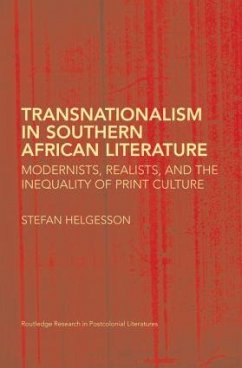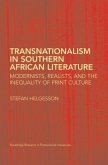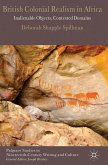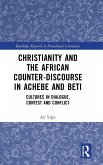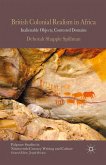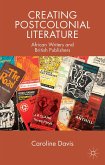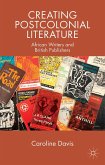Considering the growing interest in South African Literature at the moment, this study looks at both the Anglophone literature of South Africa and the lusophone literature of Angola and Mozambique.
Stefan Helgesson suggests that the prevalence of 'colonial' languages such as English and Portuguese in 'anticolonial' or 'postcolonial' African Literature is primarily an effect of the print network. Helgesson aims to demystify the authority of English and Portuguese by stressing the materiality of the print medium and emphasising the strong transnational and transcontinental vectors of southern African literature after the Second World War.
Stefan Helgesson suggests that the prevalence of 'colonial' languages such as English and Portuguese in 'anticolonial' or 'postcolonial' African Literature is primarily an effect of the print network. Helgesson aims to demystify the authority of English and Portuguese by stressing the materiality of the print medium and emphasising the strong transnational and transcontinental vectors of southern African literature after the Second World War.
"Helgesson's book is to my knowledge the first monograph to attempt a systematic theorisation of these intra-African connections and what they reveal. Helgesson's work breaks important ground. I hope the lessons his book teaches us will be given their due by specialists in the field."
- Shane Graham, Utah State University
'Helgesson's book offers a perceptive, closely argued and richly documented study of how the introduction of the print medium and culture interfered with the existing forms of literary expression in Southern Africa and was appropriated by colonial writers as an access to modern agency and identity in their struggle against colonialism.' - Commonwealth Essays and Studies
- Shane Graham, Utah State University
'Helgesson's book offers a perceptive, closely argued and richly documented study of how the introduction of the print medium and culture interfered with the existing forms of literary expression in Southern Africa and was appropriated by colonial writers as an access to modern agency and identity in their struggle against colonialism.' - Commonwealth Essays and Studies

